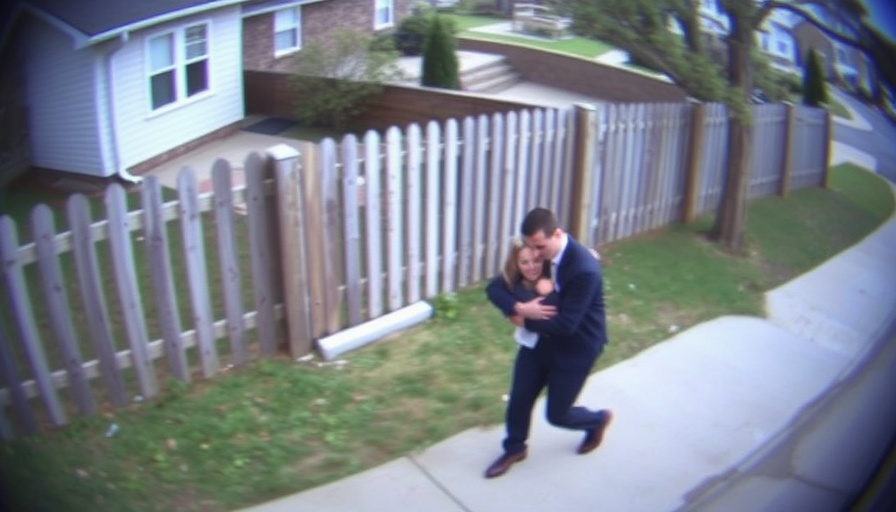
Family’s Plea for Justice Amidst Immigration Detention
The family of Margarita Avila, a Houston-area woman currently detained by ICE, is urgently calling for her release following the dropping of assault charges against her. Avila, a landscaper by occupation, was arrested last month after an altercation with a USPS worker. Despite the dismissal of the charges and the circumstances surrounding her detainment, ICE has not yet released Avila, leaving her family deeply concerned about her wellbeing and the implications of her continued detention.
The Incident and Its Fallout
On a seemingly typical day in March, Margarita Avila found herself amid a confrontation while on the job. The nature of the incident has raised questions not just about the events that transpired but also about the broader issues of immigration enforcement and the treatment of individuals caught in the crossfire.
Avila’s case highlights a troubling statistic: many individuals face harsh immigration enforcement even after charges against them are dropped or are proven to be baseless. This trend raises significant questions regarding due process and the fair treatment of individuals under U.S. law.
The Legal Maze of Immigration Enforcement
ICE detentions often occur under layers of legal malfunctions or misinterpretations of the law. Margarita's story sheds light on the maze that immigrants must navigate when entangled with law enforcement agencies. Even when local matters are resolved, the specter of immigration enforcement can loom large, complicating and worsening individual circumstances.
Further complicating the situation is the current political landscape surrounding immigration policies in the United States. With heightened enforcement measures and evolving legal frameworks, individuals like Avila often find themselves powerless against a system that seems impenetrable.
The Emotional Toll on Families
The impact of Avila's detention extends beyond physical barriers—her family's emotional and psychological wellbeing is at stake. Families of detainees frequently experience a profound sense of anxiety and hopelessness, as they grapple with uncertainty and fear for their loved ones’ futures.
In local communities, such cases can erode trust between immigrants and law enforcement. As fear takes root, many individuals hesitate to seek assistance from authorities, even in times of dire need. This fear can have ripple effects on community cohesion and public safety.
Grassroots Advocacy and Community Response
The call for Margarita Avila’s release has sparked grassroots movements within her community. Local organizations advocating for immigrant rights have rallied to draw attention to her plight, emphasizing the need for justice and humane treatments for those caught in the immigration system.
Such advocacy is crucial not just for Avila but for the wider community experiencing similar fates. Massachusetts-based immigrant advocacy group, United We Dream, notes that local action can often sway public opinion and policy, highlighting the power of collective voices in fostering change.
Future Implications and the Road Ahead
Margarita Avila’s case is more than just a story of one individual; it represents a larger narrative about immigration in America. As advocacy efforts continue and families like the Avilas navigate this challenging landscape, the hope remains that systemic change will follow.
Should the momentum from community efforts lead to tangible results, this may set a precedent for how similar cases are handled in the future. The visibility brought to such incidents could prompt lawmakers to reevaluate current practices and pursue reforms that prioritize fairness and justice.
Your Role in Supporting Advocacy Efforts
The Avila family's story underscores the importance of community support and civic engagement in addressing immigration injustices. Individuals can take action by educating themselves about local immigration policies, supporting immigrant rights organizations, and advocating for legislative changes that prioritize humane treatment for all individuals, regardless of their immigration status.
Your voice and actions can contribute to the push for reforms that may ultimately prevent further tragedies from occurring within the immigration system.
In conclusion, Margarita Avila’s situation is a poignant reminder of the challenges faced by many immigrants in the U.S. With the support of their community and advocates, the fight for justice continues. It’s crucial to keep amplifying their voices and striving for a system that values justice for all.
 Add Element
Add Element  Add Row
Add Row 



Write A Comment